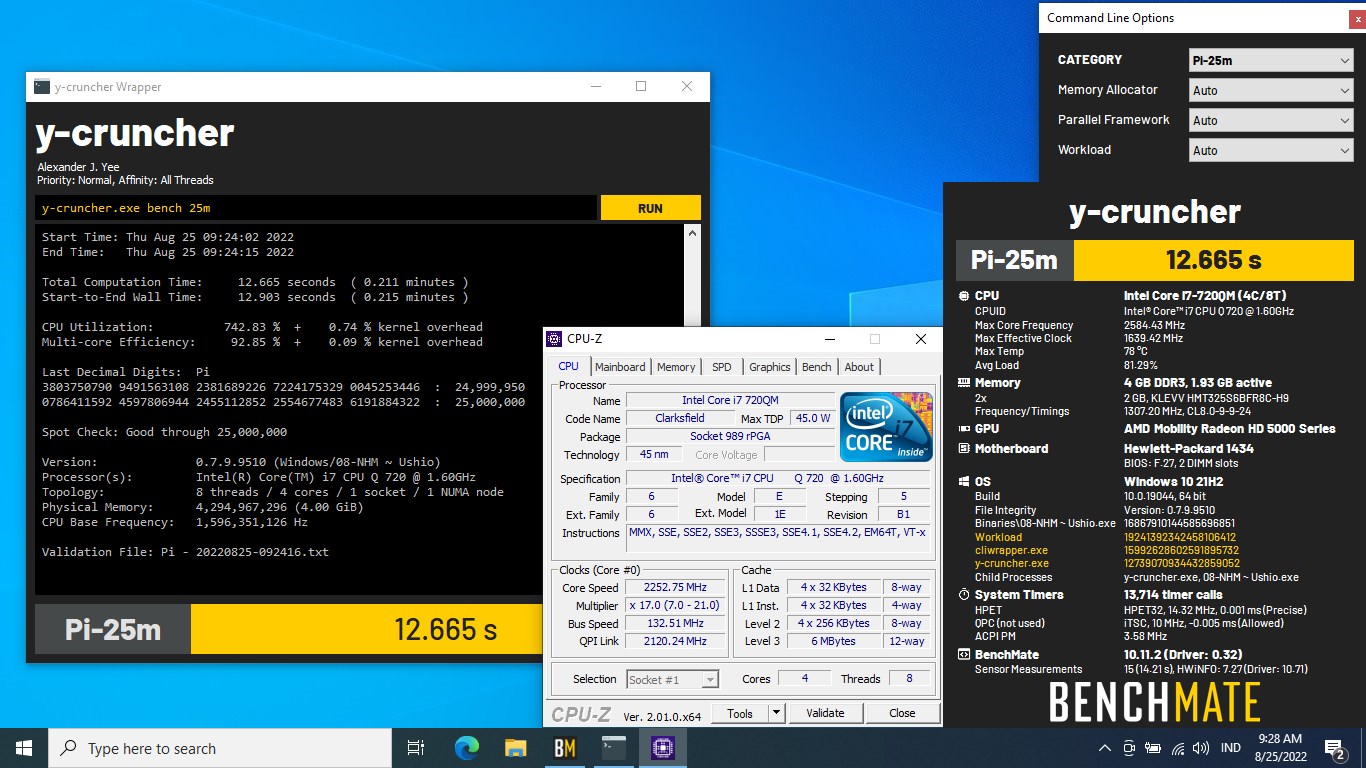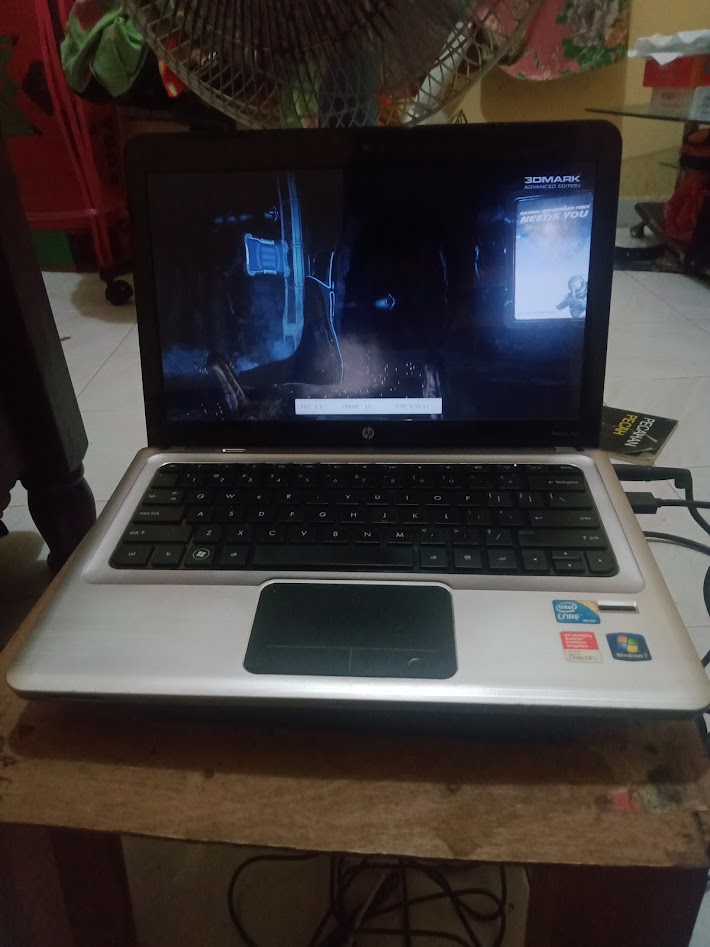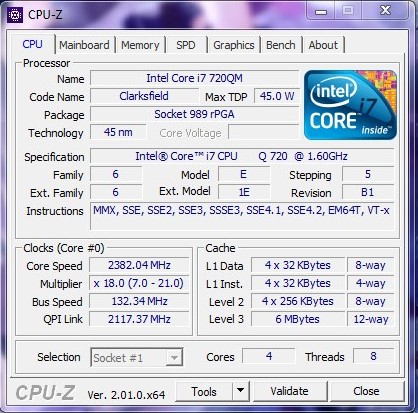y-cruncher - Pi-25m score 12sec 665ms with a i7-720QM
Thursday, 01 January 1970 07:00 | Update at null
Media Gallery
Screenshot

Device, Setup, etc



URL
https://hwbot.org/submission/5067426https://bit.ly/3B5ZtUR
Information Detail
Hardware: Intel Core i7 720QM
Specs:CPUID : Intel(R) Core(TM) i7 CPU Q 720 @ 1.60GHz
Architecture : x86
Codename : Clarksfield
L3 Cache : 6MB
Clock : 1.60GHz - 2.80GHz
Core/Thread : 4/8
TDP : 45W
Technology : 45nm
Socket : PGA988
IGPU : -
See more specification...
Software: y-cruncher - Pi-25m
Score: 12sec 665ms
About: y-cruncher - Pi-25my-cruncher - Pi-25M is a flagship benchmark that measures system performance by calculating the value of the mathematical constant π (pi) to 25 million digits using the y-cruncher application, one of the fastest and most accurate numerical computing software today. This benchmark tests the balance between single-threaded and multi-threaded performance, while assessing the system's efficiency in memory management and CPU bandwidth during complex computational processes.
Due to the relatively small size of the workload but still challenging, Pi-25M can be completed in a short period of time, making it ideal for measuring system responsiveness and speed without having to run long tests. In addition, this benchmark is very sensitive to several important factors such as CPU clock speed, memory latency, and operating system optimization, which makes it a popular test tool especially in lightly overclocked stability testing.
The use of y-cruncher - Pi-25M is commonly found in hardware testing scenarios to look at system performance on high-precision numerical tasks while providing a balanced picture of the processor's ability to run single-core and multi-core workloads. This benchmark is also suitable for users and overclockers who want to get fast, valid data on their system's performance in mathematically intensive computing situations but with an efficient test duration.
The Intel Core i7-720QM, launched in Q3 2009, was one of the first mobile quad-core processors to feature Intel's Nehalem microarchitecture, specifically the Clarksfield variant. Targeted at high-performance laptops, such as gaming machines and mobile workstations, the i7-720QM brought 4 physical cores and 8 threads to the mobile platform, thanks to Hyper-Threading Technology providing a significant boost in multi-threaded workloads like video editing, 3D rendering, and other professional-grade applications. The processor runs at a base clock speed of 1.6 GHz, but it can dynamically increase up to 2.8 GHz using Intel Turbo Boost, depending on thermal headroom and power availability.
Manufactured using a 45nm process, the i7-720QM has a TDP of 45W, which is quite high by today's mobile CPU standards. This thermal demand necessitated more robust cooling solutions in laptops that featured the chip. Unlike modern CPUs, the i7-720QM does not come with integrated graphics, which means systems based on this processor require a dedicated GPU often from AMD or NVIDIA for graphics processing and display output. As such, it was typically paired with mid-to-high-end discrete graphics cards in its time, making it a solid choice for gaming and multimedia laptops in the late 2000s and early 2010s.
While the Core i7-720QM was a powerhouse during its release, its performance and efficiency are significantly outpaced by modern CPUs built on smaller nodes and with higher IPC (Instructions Per Clock). Nevertheless, legacy laptops using the i7-720QM can still be viable for basic computing tasks like web browsing, document editing, or watching videos especially if paired with an SSD upgrade and increased RAM. Users running Windows 10 on such systems may experience some limitations, but with proper optimization and lightweight software, the CPU can still deliver a usable experience in non-demanding environments.
Hardware Detail:
Device: HP Pavilion dv3-4054TX
RAM: 4GB DDR3 Single Channel
OS: Windows 7, Windows 10
* Not Avaiable
